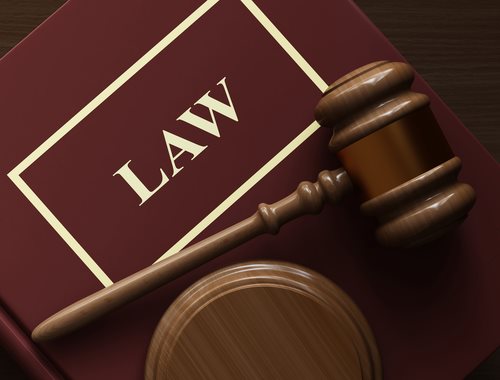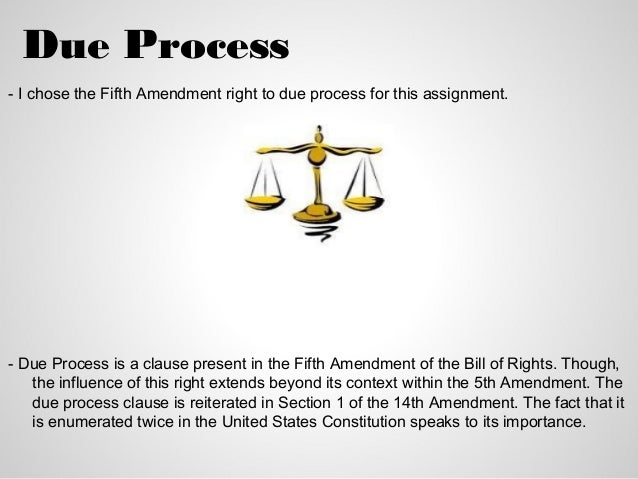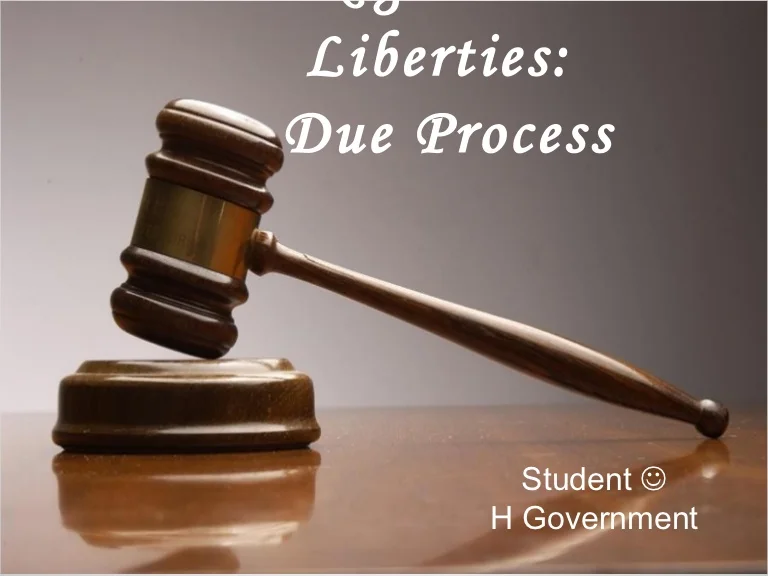A fundamental principle of fairness in all legal matters both civil and criminal especially in the courts. Due process of law.
Due process of law definition the regular administration of the law according to which no individual may be denied his or her legal rights and all laws must conform to fundamental accepted legal principles as the right of the accused to confront his or her accusers.

Definition of due process. Due process is the legal requirement that requires the state to respect all the legal rights owed to a person. The concept of due process originated in English Common Law. In each case due process contemplates an exercise of the powers of government as the law permits and sanctions under recognized safeguards for the protection of individual rights.
Due process - law the administration of justice according to established rules and principles. Due process is the legal requirement that the state must respect all legal rights that are owed to a person. A citizens fair treatment within the rules of a governments legal system 2.
Due process balances the power of law of the land and protects the individual person from it. When a government harms a person without going through due process first this constitutes a due process violation. Search Legal Terms and Definitions due process of law n.
All legal procedures set by. Group action - action taken by a group of people. The Fourteenth Amendment ratified in 1868 uses the same eleven words called the Due Process Clause to describe a legal obligation of all states.
Procedural due process refers to the constitutional requirement that when the federal government acts in such a way that denies a citizen of a life liberty or property interest the person must be given notice the opportunity to be heard and a decision by a neutral decisionmaker. These words have as their central promise an assurance that all levels of American government must operate within the law legality and provide fair procedures. A citizens fair treatment within the rules of a governments legal system 2.
The due process clause of the 5th Amendment applies to the federal government and the 14th Amendment applies to the states. Due process balances the power of the state and protects the individual person from the power of the state. Due process a course of legal proceedings according to rules and principles that have been established in a system of jurisprudence for the enforcement and protection of private rights.
Due process involves both procedual and substantive aspects. When a government harms a person without following the exact course of the law this constitutes a due process violation which offends the rule of law. Due process applies to both civil and criminal.
The due process guarantees under the Fifth and Fourteenth Amendments to the US. Due process is the requirement that established laws and standards of behavior must be followed during any official act on the part of the state to ensure that the individuals rights are not infringed upon. Substantive Due Process pertains to those rights not listed specifically in the US.
Substantive due process is often related to areas such as voting minorities and the rights of children. A course of formal proceedings such as legal proceedings carried out regularly and in accordance with established rules and principles. Definition of due process.
The United States Constitution guarantees that the government cannot take away a persons basic rights to life liberty or property without due process of law Courts have issued numerous rulings about what this means in particular cases. Due process is an idea that laws and legal proceedings must be fair. Constitution but which are recognized as an important part of an individuals liberty.
Called also procedural due process. Based on the principle that a person cannot be deprived of life or liberty or property without appropriate legal procedures and safeguards. Due process is a requirement that legal matters be resolved according to established rules and principles and that individuals be treated fairly.
The concept of due process derives from clause 39 from the Magna Carta enacted by King John of England in 1215. The rule that individuals shall not be deprived of life liberty or property without notice and an opportunity to defend themselves predates written constitutions and was widely accepted in England. Constitution Clause provide that the government shall not take a persons life liberty or property without due process of law.
 Due Process Definition For Kids Youtube
Due Process Definition For Kids Youtube
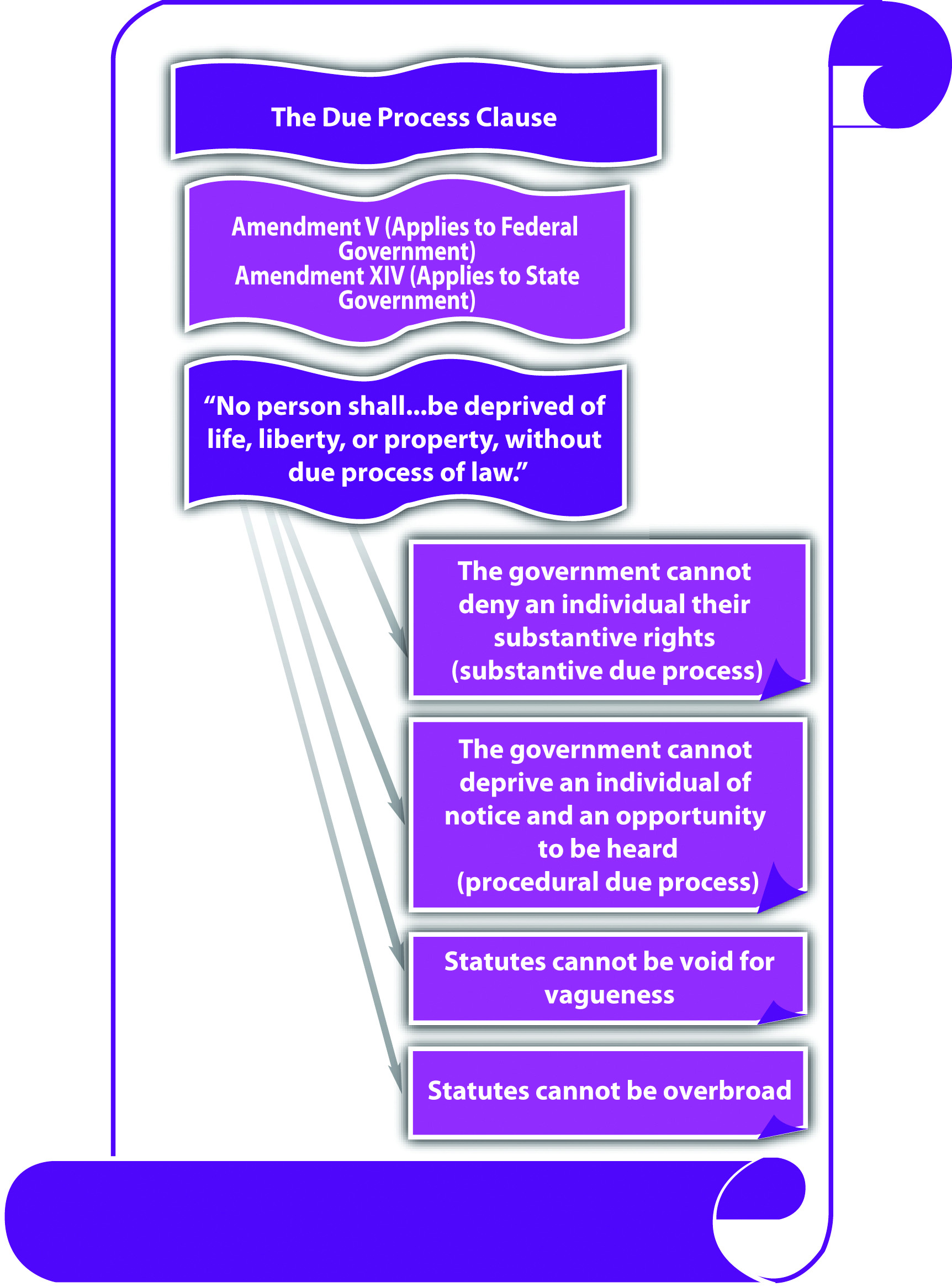 3 2 The Due Process And Equal Protection Clauses Criminal Law
3 2 The Due Process And Equal Protection Clauses Criminal Law
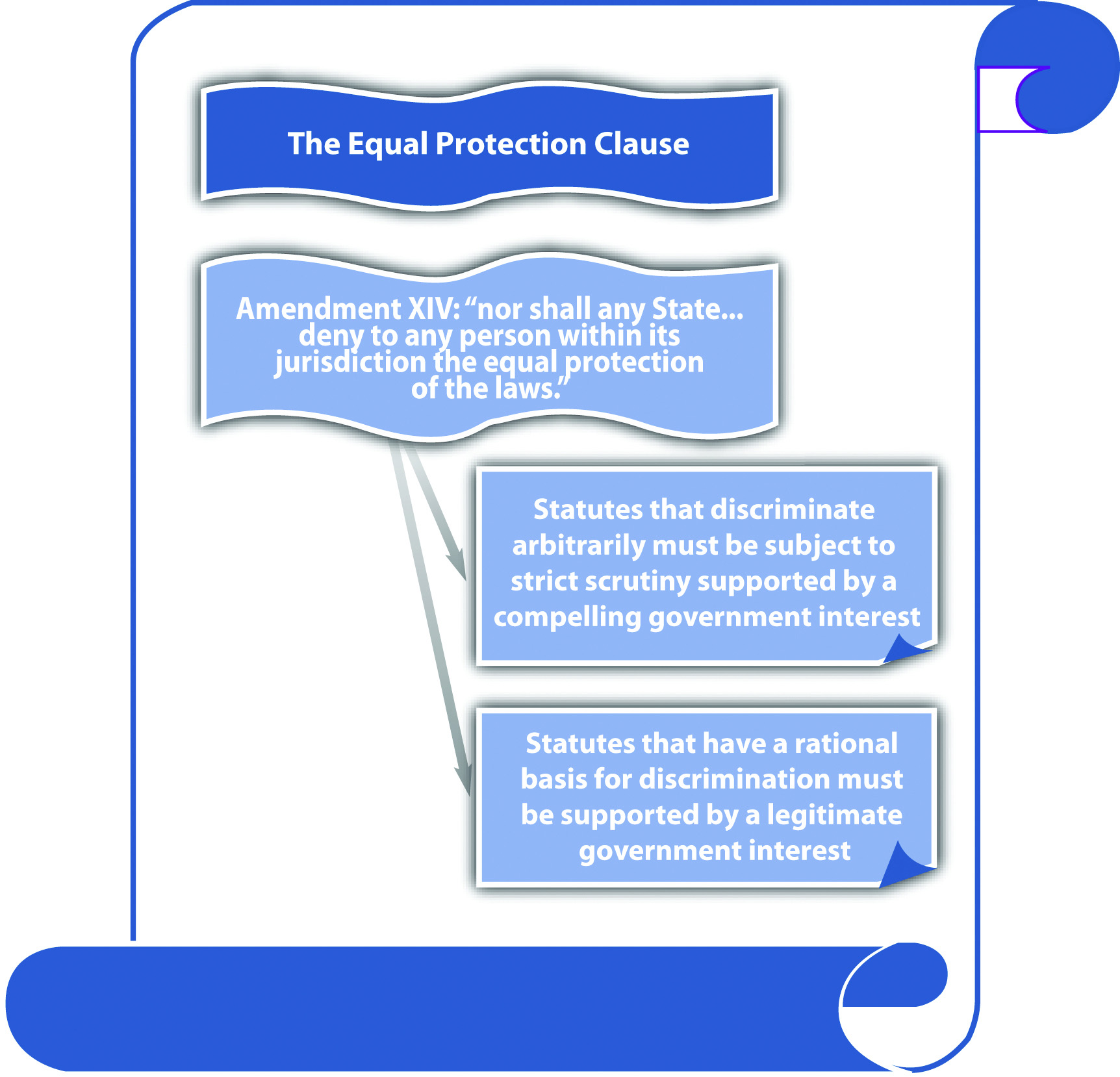 The Due Process And Equal Protection Clauses
The Due Process And Equal Protection Clauses
 What Is Due Process In Crime Control Definition Guarantees Video Lesson Transcript Study Com
What Is Due Process In Crime Control Definition Guarantees Video Lesson Transcript Study Com
 What Is The 14th Amendment Due Process Clause Youtube
What Is The 14th Amendment Due Process Clause Youtube
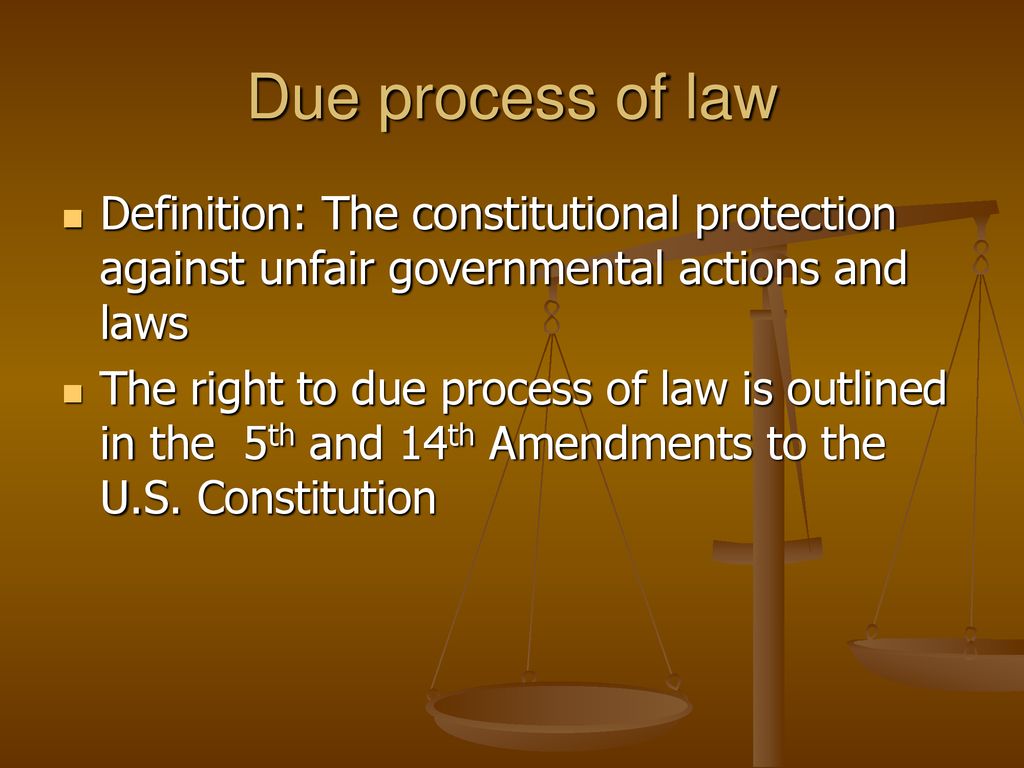 Due Process Standard Ce 10d Ppt Download
Due Process Standard Ce 10d Ppt Download
 Due Process Definition Due Process Meaning Youtube
Due Process Definition Due Process Meaning Youtube
 Due Process Simple English Wikipedia The Free Encyclopedia
Due Process Simple English Wikipedia The Free Encyclopedia
 Due Process Definition What Does Due Process Mean
Due Process Definition What Does Due Process Mean
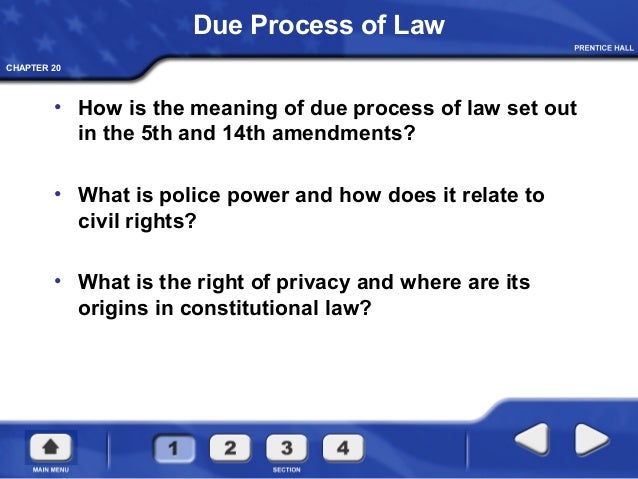
/GettyImages-165026134-2b60d5b775d64acdae21e5851db5aea0.jpg)

